In this post, you will find a list of the best credit cards for bad credit you can qualify for, even if your credit is less than stellar.
If you have had problems with managing your finances in the past and this has resulted in a bad credit profile, there is hope that you can turn things around and improve your credit score when you use credit wisely.
A credit score is a three-digit number ranging from 300 to 900 that lenders use to determine your creditworthiness in Canada.
If your credit score is above 660, it qualifies as ‘good,’ and you may qualify for credit easily. When your credit score falls below 660, it is seen as either ‘poor’ or ‘bad’ depending on where you fall, and getting credit approval becomes much more difficult.
Here’s how you rank based on your credit score:
- 760 – 900 → Excellent
- 725 – 759 → Very Good
- 660 – 724 → Good
- 560 – 659 → Poor
- 300 – 559 → Bad
In some cases, borrowers may find it difficult to access credit facilities due to a lack of credit history and as a result of being newcomers to Canada.
Whether you have bad credit or have no credit at all, the mix of secured, unsecured, low-interest rate and guaranteed approval credit cards allow you to establish your credit from scratch or to repair your existing bad credit rating.
Best Credit Card for Bad Credit in Canada
The best credit card for bad credit in Canada is the Neo Secured Credit.
Neo Secured Credit
Rewards: Earn an average of 5% real cash back on purchases.
Welcome offer: Up to 15% cashback on your first-time purchases, plus a $25 welcome bonus.
Interest rates: 19.99% – 29.99% for purchases; 22.99% – 31.99% for cash advances.
Annual fee: $0
Credit limit: Starts at $50.
Credit score required: Poor or bad credit score.
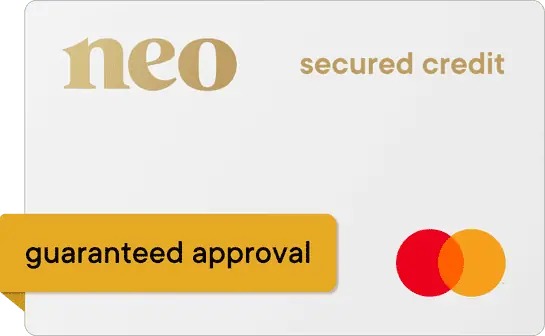
| Credit Card | Card Type | Features | Annual Fee |
| Neo Secured Card | Secured | Guaranteed approval, accepts poor, bad, & no credit; low $50 minimum security funds | $0 |
| KOHO Mastercard | Prepaid | Guaranteed approval, accepts all credit types, no minimum balance, earn cash back, no interest fees, 0% APR cash advances | $0 |
| Home Trust Secured No Fee Visa | Secured | $500 min. security deposit, bad to poor credit, 19.99% AIR | $0 |
| Tangerine Money-Back Mastercard | Unsecured | Poor to good credit (600+); 1.95% balance transfer for 6 months; up to 2% cash back | $0 |
| Home Trust Secured Visa (Low Rate) | Unsecured | $500 min. security deposit, 14.90% AIR; bad to poor credit | $59 |
| Scotiabank Value Visa | Unsecured | Fair or no credit history for newcomers, $500 minimum limit, 12.99% AIR, 0.00% balance transfer | $29 |
| Neo Money Card | Prepaid | No credit history required, earn up to 5% cash back, $20 bonus | $0 |
| RBC Visa Classic Low Rate Card | Unsecured | Fair to good credit; 11.99% interest rate for purchases and cash advances | $20 |
| BMO Preferred Rate Mastercard | Unsecured | Fair to good credit, 12.99% AIR, 3.99% balance transfer, extended warranty | $20 |
| Capital One Low Rate Guaranteed Mastercard | Secured | $300 to $7,000 security deposit; accepts bad or poor credit | $79 |
Best Secured Credit Cards for Bad Credit
If you have a low credit score and are unlikely to be approved for an unsecured credit card, you should check out these three options.
1. Neo Financial Secured Mastercard
- Annual fee: $0
- Rewards: Up to 5% real cash back; $25 welcome bonus
- Credit score requirement: None; does not conduct a hard credit check (guaranteed approval)
- Credit limit: Starts at $50 and up to your security deposit
- Minimum income eligibility: $0
Neo Secured Credit is the best secured credit card in Canada by far.
Recently launched to join the Neo Card (a top cash back card), the Neo Secured Card offers unlimited cash back rewards at partner stores, and a 0.50% minimum cash back guarantee at non-partner stores (up to $50 cash back monthly).
Approval is guaranteed for this card, and you can apply for it with any credit rating or income. You can learn more about it in this Neo Secured Card review.

2. KOHO Prepaid Mastercard
- Annual fee: $0* annual fee; $5 to $10 monthly for the optional credit builder
- Rewards: Up to 5% real cash back; $20 welcome bonus; Earn 5% interest on your balance
- Credit score requirement: none
- Minimum income eligibility: $0
The KOHO Prepaid Mastercard offers a free* prepaid card and comes with a versatile app that helps you with budgeting, automatic savings, and real-time insights into your spending. To build your credit, you can add on Credit Building for a low monthly fee.
Here’s what you get with the KOHO Mastercard:
- Credit building
- Access to free credit score monitoring
- 1% cash back on groceries, restaurants, gas and transportation; up to 5% at partner stores
- 5.00% savings interest is paid on your entire balance
- 0% APR cash advances of up to $250 available in-app
- An automatic savings plan that rounds up your purchases and saves the difference
- Free budgeting app
- An optional premium account that offers even more rewards
New KOHO users get a $20 cash bonus when they sign up using the CASHBACK promo code and complete their first purchase.
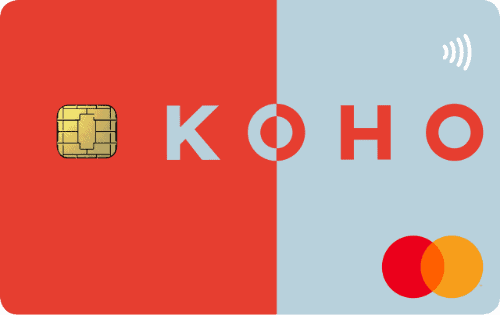
3. Home Trust Secured Visa Card
- Annual fee: $0
- Credit score requirement: bad to poor
- Credit limit: $500 to $10,000
- Minimum income eligibility: $0
The Home Trust No Fee Secured Visa card is a secured card that works great for rebuilding your credit. You must put down a security deposit that determines your credit limit, starting from $500.
The card charges a 19.99% interest rate on purchases and cash advances.
You are expected to pay this card like any other credit card. When you close your account, your security deposit is returned.
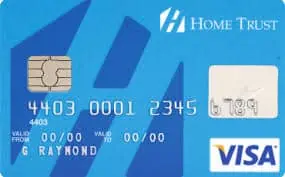
Best Unsecured Credit Cards for Fair and Bad Credit
4. Tangerine Money-Back Mastercard
- Annual fee: $0
- Welcome offer: 10% extra cash back in the first 2 months ($100 value)
- Credit score requirement: Fair to good; recommended at 600+
- Minimum income: $12,000
- Credit limit: N/A
The Tangerine Money-Back Credit Card is one of the best no-fee cash back credit cards in Canada. It also doubles as a great unsecured credit card if you have poor credit (600+).
This card does not have an annual fee and pays up to 2% real cash back on your spending. In addition, new cardholders enjoy a low 1.95% promotional balance transfer for the first 6 months.
It has a standard 19.95% interest rate on purchases, balance transfers, and cash advances, and comes with free purchase protection and extended warranty coverage.
Lastly, to qualify for this Tangerine card, you must be clear of bankruptcies over the past 7 years.
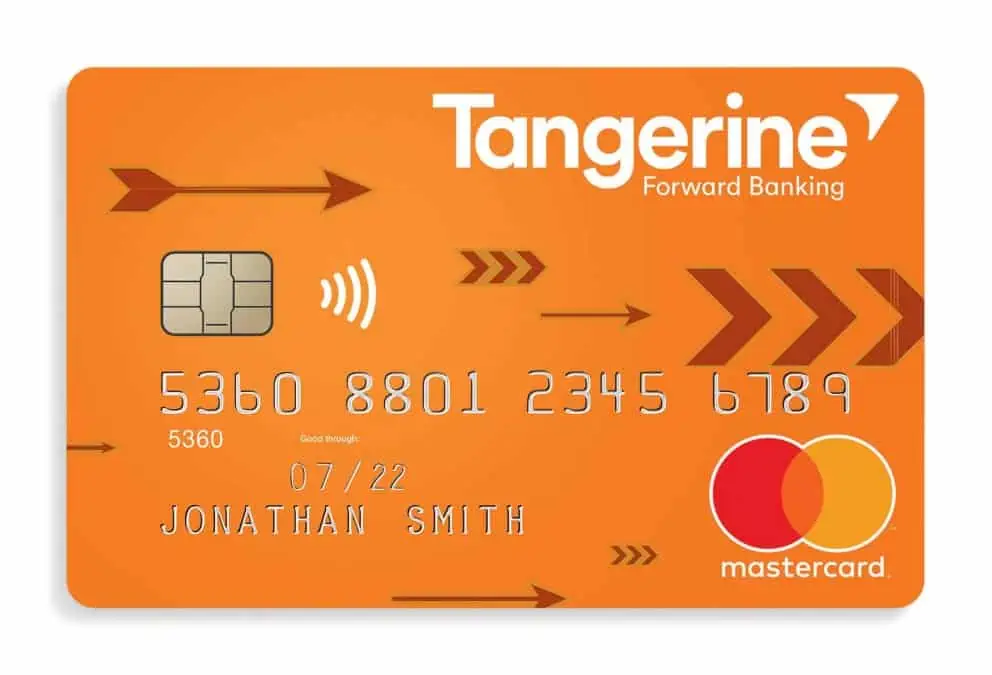
5. Scotiabank Value Visa Card
- Annual fee: $29 (waived in the first year)
- Credit score requirement: Fair. No credit history is needed if you are new to Canada
- Credit limit: $500 minimum
The Scotiabank Value Visa card is an unsecured card with a low annual fee. If you are looking to transfer your existing credit balance to pay a lower interest rate, this card offers a 0.00% promotional rate on balance transfers for the first 10 months and 12.99% AIR after the introductory offer ends.
An additional benefit offered by this card is a 25% discount on car rentals at participating AVIS and Budget locations.
Unless you are a newcomer with no credit history, you will need a fair to good credit rating to qualify for this card. Learn more in this review.
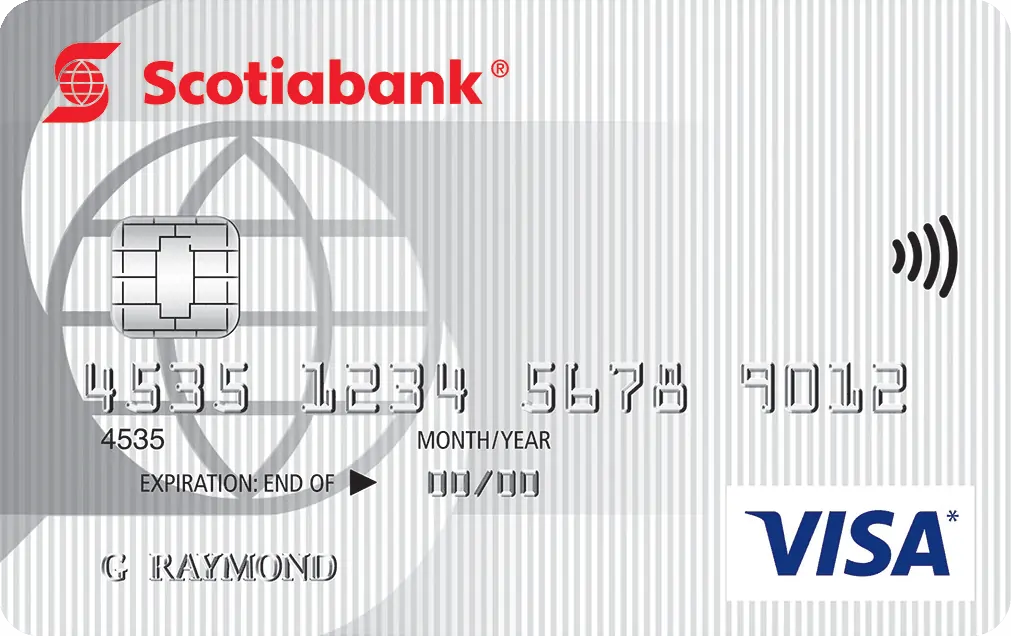
6. RBC Visa Classic Low Rate Card
- Annual fee: $20
- Credit score requirement: Fair to good
- Minimum income eligibility: $15,000
If your credit score is in the fair-to-good category, you may qualify for the RBC Visa Classic low rate option card. This unsecured card comes with a low 11.99% rate on cash advances and purchases, and you are not required to put down a deposit.
The annual fee of $20 is minimal and is easily paid off by the savings on the low-interest rate if you carry a balance on your card.
Other perks offered by this card are:
- Purchase security and extended warranty insurance
- Save 3 cents per litre when you buy gas at Petro Canada
7. BMO Preferred Rate Mastercard
- Annual fee: $20
- Credit score requirement: Fair to good
- Minimum income eligibility: $15,000
The BMO Preferred Rate Mastercard offers one of the lowest interest rates on purchases available in Canada at 12.99% and an introductory rate of 3.99% on balance transfers for your first 9 months.
Other perks included with this card are the free extended warranty and purchase protection. A one-time 1% transfer fee is applied to balance transfers.
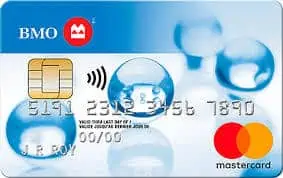
Best Prepaid Credit Cards for Bad Credit
Prepaid credit cards may come in handy if you only need a card that you can easily use to make payments online and everywhere else.
Generally, card issuers do not check your credit score, and they also do not report to credit rating agencies. So, these cards will not help you build your credit score.
You can only spend money you load onto a prepaid card, so they can technically be referred to as reloadable debit cards.
8. Neo Money Mastercard
- Annual fee: $0 or $4.99
- Welcome bonus: $20 bonus
- Credit score requirement: none
- Minimum income eligibility: $0
The Neo Money card is a solid prepaid card with benefits far exceeding what you normally find in prepaid credit cards.
It is reloadable and can be used to make payments worldwide. It also comes with an app (available on iPhone and Android) that makes it easy to budget and track your spending.
Here are the benefits you get with the Neo Money card:
- Free prepaid card ($0), or you can pay $4.99 monthly for a Premium account with extra perks
- Earn 1% cash back on gas and grocery and an average of 5% unlimited cash back at thousands of partner stores
- Access to a free savings account with unlimited transactions
- $20 welcome bonus when you load with $50 or more
- Earn 2.25% interest on your balance
- Access to a free high interest savings account
- Unlimited transactions, bill payments, and Interac e-Transfers
Apply for the Neo Money Card (includes a $20 welcome bonus when you sign up, fund your card with $50, and complete your first purchase).
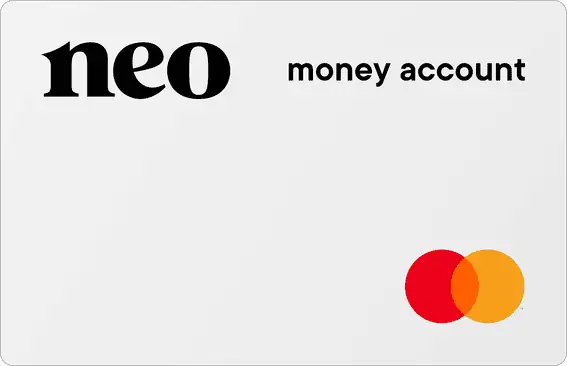
Best Low-Rate Secured Credit Card for Bad Credit
Have bad credit and prefer a low-interest rate credit card? There are options. If your credit is fair to good, you may be able to obtain an unsecured credit card and not have to make a security deposit.
9. Home Trust Secured Visa (Low Rate)
- Annual fee: $59
- Credit score requirement: bad to poor
- Credit limit: $500 to $10,000
- Minimum income eligibility: $0
The Home Trust Secured Visa card (low-rate option) offers a low-interest rate of 14.90% on purchases. This low rate comes with a $59 annual fee or $5 monthly.
This card makes sense if you will be carrying a balance from month to month after making the minimum payments. You save a bit of money compared to the typical 19.99% charged by secured cards.
Since this card is secured, you will need to make a security deposit that reflects your credit limit. If you have had difficulties getting approved for a credit card due to a previous bankruptcy that is now discharged, you should check out the Home Trust Secured Visa.

Best Guaranteed Secured and Unsecured Credit Cards for Bad Credit
A guaranteed credit card means you are likely to be approved even if you have bad credit. The issuer reports your usage to the credit bureaus so you can use these cards to rebuild your credit score.
One popular guaranteed credit card is the Refresh Financial Secured Visa. Capital One also has a selection of three guaranteed cards that may suit your needs.
10. Capital One Low Rate Guaranteed Mastercard
- Annual fee: $79
- Credit score requirement: bad to poor
- Credit limit: $300 to $7,000
The Capital One Low Rate Guaranteed Mastercard offers guaranteed approval which, combined with its lower 14.90% AIR on purchases and balance transfers, makes it a good deal if your credit is bad. The interest rate for cash advances is 19.80%.
To qualify, you must meet the following conditions:
- Be at least the age of the majority in your province or territory of residence
- You have not applied for a Capital One account more than once in the last month
- Not have an existing Capital One account or a pending application for one
- Not have a Capital One account that was in bad standing in the last year.
If your application for the unsecured low-rate guaranteed card is not approved, Capital One may approve you for the unsecured version.
11. Capital One Guaranteed Secured Mastercard
- Annual fee: $59
- Credit score requirement: bad to poor
- Credit limit: $300 to $2,500
- Security funds: $75 to $300
The Capital One Guaranteed Secured Mastercard requires you to deposit security funds of $75 to $300 before you can be approved, and it comes with a $59 annual fee.
It is an excellent card for establishing or repairing your credit score since Capital One reports your credit payments and history to the credit bureaus every month. This card comes with a 19.8% interest rate on purchases, balance transfers, and cash advances.
Other Cards To Rebuild Credit in Canada
You can also use one or a mix of store credit cards, prepaid cards, and secured cards to grow your credit score or make payments while rebuilding your credit.
12. PC Financial Mastercard
- Annual fee: $0
- Credit score requirement: 700+
- Minimum income eligibility: N/A
This store credit card is easy to qualify for and does not have an annual fee. If you frequent Loblaw stores, you earn PC Optimum points when you pay with your card.
You earn 25 PC Optimum points per $1 spent at Shoppers Drug Mart, 20 points per $1 spent on travel, and 10 PC Optimum points per $1 spent at PC grocery stores and everywhere else.
Rack up 10,000 points, and you can redeem it for $10 off products and groceries at PC stores.
It has an interest rate of 20.97% on purchases and 22.97% on cash advances, with a 21-day grace period for new purchases.
13. Canadian Tire Triangle Mastercard
- Annual fee: $0
- Credit score requirement: 660+
- Minimum income eligibility: N/A
Canadian Tire offers several credit cards tailored after its Triangle Rewards Program. They are easy to qualify for, and you earn Canadian Tire Money when you spend using the card.
With the Triangle Mastercard, you earn 4% back in Canadian Tire Money on all purchases at Canadian Tire-owned stores. You earn 1.5% on groceries and 0.5% back everywhere else.
Canadian Tire Money can be redeemed at Canadian Tire, Marks, L’Equipeur, Sport Chek, and more. $1 in Canadian Tire Money = $1 in free stuff.
14. RBC RateAdvantage Visa
- Annual fee: $0
- Credit score requirement: N/A
- Minimum income eligibility: N/A
This RBC credit card sets interest rates based on your credit score. The higher your credit score, the lower your rate.
The purchase and cash advance APR is RBC’s prime rate + 4.99% to 8.99%.
The RBC RateAdvantage Visa comes with purchase security insurance for up to 90 days and extended warranty insurance for up to one extra year.
This credit card also comes with savings at Petro-Canada, Rexall, and DoorDash.
15. CIBC Air Canada AC Conversion Prepaid Visa Card
- Annual fee: $0
- Credit score requirement: N/A
- Minimum income eligibility: N/A
This prepaid card from CIBC holds 10 currencies and pays 1% cash back on your spending. You can apply for this card with any credit and use it for payments; however, it can’t be used to build your score.
Methodology:
Savvy New Canadians ranks the best credit cards for bad credit based on their annual fees, interest rates, welcome bonuses, rewards, top features, categories, insurance coverage, and other perks. We carefully evaluate each credit card and place more weight on the value of the long-term rewards each card offers. Visit the website of the credit card issuer to read their latest offers and terms and conditions.
Types of Credit Cards for Bad Credit in Canada
Some of the credit card options that may be useful to you if you have bad credit are:
- Secured credit cards
- Unsecured credit cards
- Guaranteed credit cards
- Low-interest-rate credit cards
- Prepaid credit cards
- Student credit cards
- Newcomer credit cards
One important thing to note here is the difference between secured and unsecured credit cards.
Secured Credit Cards
Secured credit cards require you to put down a security deposit that either matches your credit limit or is a percentage thereof. Secured credit cards are easier to qualify for since the credit issuer now has collateral from you that significantly diminishes their risk.
Unsecured Credit Cards
An unsecured credit card works like a ‘regular’ credit card, and no collateral or security deposit is required. Both secured and unsecured credit cards report to the credit bureaus, so you can use them to rebuild your credit. Also, a secured credit card may offer perks and rewards similar to regular cards.
Guaranteed Credit Cards
Guaranteed credit cards often refer to a form of secured credit card that requires you to make a deposit (full or partial) and guarantee that you will very likely be approved even if your credit history is bad to poor. In some cases, they offer instant approval.
Low Interest Rate Credit Cards
Low-interest rate cards can be secured or unsecured. They may charge a lower interest rate on cash advances and your credit balance in general. While having a lower rate is great, your aim should be to pay off your balance every month so you can build up your credit score fast.
Prepaid Credit Cards
Prepaid cards offer the convenience of a Visa or Mastercard and are convenient for shopping online or in-store. Since the issuing financial institutions do not generally send reports to the credit bureaus, these cards do not help improve your credit rating. However, you can qualify for them with any type of credit.
Student Credit Cards
Students who are just building credit history will find it easier to qualify for student credit cards that have minimal eligibility requirements. Here are some of the best student credit cards. Canadian big banks also have student-branded credit cards like CIBC, TD, BMO, and RBC.
Newcomer Credit Cards
New immigrants in Canada can qualify for a credit card without a Canadian credit history. To take advantage, apply through one of the newcomer banking programs offered by RBC, TD, BMO, CIBC, and Scotiabank. You will need to show proof of your Canadian residency when applying. International students can also get credit cards through these programs. Here are several excellent credit cards for newcomers.
What Is a Bad Credit Score in Canada?
Creditors use a credit score to determine your risk level. If you have a bad credit score, creditors are less likely to lend you money on favourable terms or lend you money at all.
What leads to a bad credit score?
One of the primary causes is failing to make your payments back on time. For example, using a credit card and making a late payment can hurt your score. Likewise, if you borrow money from another type of lender and do not pay it back on time, this can hurt your score too.
Other factors can also impact your score. For example, applying for lots of credit cards in a short period can impact your score.
The credit utilization rate is another factor. This is the amount of available credit you have access to that you use.
If you have two credit cards with a total limit of $5,000, but you only use a small amount of this credit, this can be good for your credit score. If you use a high amount of your available credit, on the other hand, the opposite is true.
The type of credit you carry can also impact your score, as is the length of your credit history.
A credit score is expressed as a number. In Canada, the numbers range from 300 to 900. 300 is the lowest score, while 900 is the highest.
But some brackets determine what a bad credit score is and what makes a good credit score.
A bad or poor credit score is anything from 300 to 659, while an excellent credit score is anything over 760.
These are not set rules, and different lenders will use their criteria. But with a score of below 660, you may find it harder to get accepted when you apply for a credit card.
How to Check if You Have Bad Credit
Before applying for a credit card or any other type of loan, it’s a good idea to check your credit score.
You may find it too low to apply for credit, which can save you time applying for cards you won’t be accepted for. It can also prevent you from applying too frequently and seeing your score take a small hit each time.
Equifax and TransUnion are the two credit bureaus in Canada, and your credit activity is reported to these. However, they are not necessarily the easiest or cheapest places to check your score.
Fortunately, there are third-party services that make it easier to find out your credit score.
One of these is Borrowell, where you can sign up and get your credit score for free. The others are Credit Karma and your bank.
You can then use the information you find to make decisions regarding applying for credit cards.
How to Choose a Credit Card for Bad Credit
The first thing to do when you want to get a credit card for bad credit in Canada is to go through the types of cards available.
Which of the above cards is most suitable based on your situation?
Consider your purpose as well. For example, a secured credit card may be a good choice if you primarily want a credit card to build your credit score. On the other hand, a student credit card may be best if you have no credit history.
When you have determined the most suitable credit card for your situation, compare the available cards.
For example, there are many secured credit cards to choose from, but they will all have different application criteria, annual fees, and credit limits.
Compare all the factors and choose the most suitable for your situation before deciding which to apply for.
How to Apply for a Credit Card with Bad Credit
Applying for a credit card in Canada with bad credit is relatively straightforward. The most important thing is to only apply when you are sure you have a good chance of being accepted.
This is because each time you apply for a credit card, your score takes a minor hit.
Some card issuers will allow you to find out if you will get approved before you apply, so this is worth doing. Other cards might state that they will not check your credit score, but it’s still a good idea to only apply when you know you have a good chance of success.
With most credit cards, you can apply on the website and often get a decision in minutes. You might also be able to apply over the phone or at a bank branch.
Pros Of Bad Credit Credit Cards
Secured credit cards can help you build credit as long as you pay off your balance on time each month. They are a great way to raise your credit score and get you on your way to applying for an unsecured credit card.
You can get approved quite easily for a secured credit card if you have the funds for a security deposit.
Some secured, unsecured, and prepaid credit cards for bad credit allow you to earn rewards, like cash back, points, and other rewards.
Cons Of Bad Credit Credit Cards
With secured credit cards, you need to put down a security deposit, usually no less than $100 to $300. If you don’t have this money upfront, it can be hard to get a credit card.
Usually, the security deposit is your credit limit. This means that your credit limit is generally relatively low, likely under $1,000.
Credit cards for bad credit may also charge high-interest rates, so watch out for that when applying for a credit card.
How To Rebuild Your Credit Score With a Credit Card
Having a good credit score and profile is essential. Financial institutions and service providers often refer to it before approving you for credit or service.
While you can opt to pay cash whenever possible, the easiest way to work your way back into the good books of these providers is to start being smart with how you use credit.
Here are some of the best tips for improving your credit score:
1. Pay your bills on time, all of the time. Your payment history makes up about 35% of your credit score calculation.
2. Use no more than 30% of your credit limit. For example, if your credit limit is $1,000, keep your outstanding balance at $300 or less.
3. Keep your oldest credit cards since the length of your credit history matters (15% weighting), primarily if you have used the card responsibly.
4. Avoid making too many credit applications. Hard inquiries by lenders may impact your score negatively.
5. Request your free credit report and review it for errors. If you find inaccuracies, contact the credit bureaus (Equifax or TransUnion) and ask them to correct or delete them.
6. Mix up your credit types and use them wisely to give your credit score a boost.
Credit Card Options For Students In Canada
Students looking to get their first credit card and those who don’t have a credit history have some options.
If you’re looking for a cash back credit card, the Tangerine Money-Back Credit Card is a top choice. You can earn 2% cash back in up to 3 categories of your choice, plus 0.5% cash back on everything else. Also check out the Neo Mastercard.
The Scotia Momentum No-Fee Visa Card, American Express Cobalt Card, and PC Financial Mastercard are other top choices.
Look at our list of the best student credit cards in Canada.
How to Get a Credit Card as a Newcomer to Canada
As a newcomer to Canada with no credit history, you can apply for an unsecured or secured credit card or a prepaid card. Secured and prepaid card options require no minimum credit score, and you only use the money you load onto the card.
With a secured credit card, you put down a deposit, which is usually your credit limit. As you use the card and pay off your balance each month, you will start to build a good credit history and will be on your way to applying for an unsecured credit card in a few months.
Prepaid credit cards are available to anyone and easy to get, as you load money onto it and are not borrowing anything as you would be with a regular credit card. Some prepaid cards, like the KOHO and Neo Mastercards, even allow you to earn cash back.
Frequently Asked Questions
There is no lowest credit score for a credit card, as unsecured and prepaid credit cards do not require a minimum credit score to qualify. However, be aware of high interest rates and hidden fees.
In Canada, negative information stays on your credit report for 6 years. However, it can remain for shorter or longer periods of time.
No, you cannot pay anyone to reset your credit score. You can, however, apply for a secured credit card and pay it off on time to slowly raise your credit score, or take out a credit building loan.
It can take around 12 to 18 months for a credit score of 500 to get to a fair to good credit score (580-669). During this time, you must use your credit cards responsibly and make all your payments on time.
You’ll need a good credit score of at least 670 to qualify for an Amazon credit card.
Related:

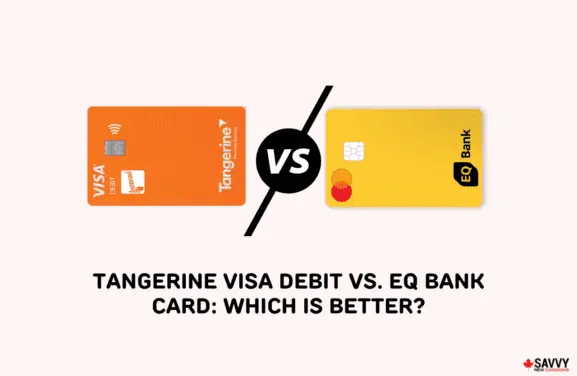
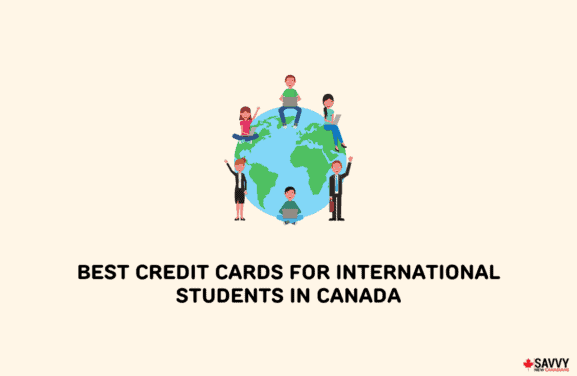
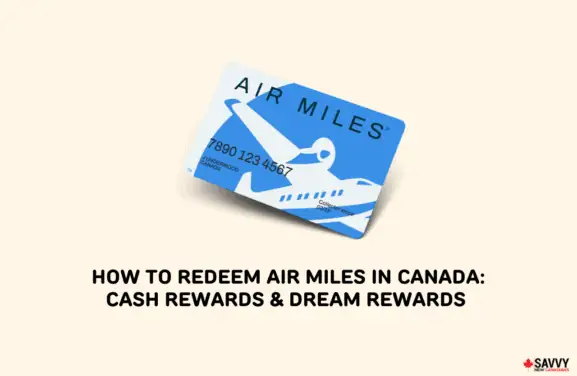

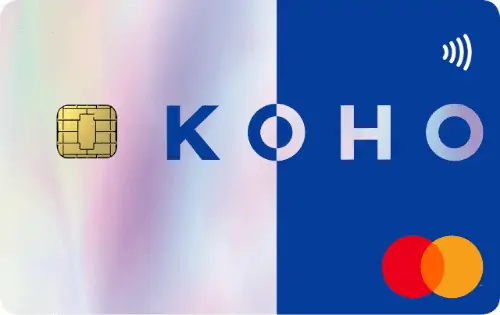
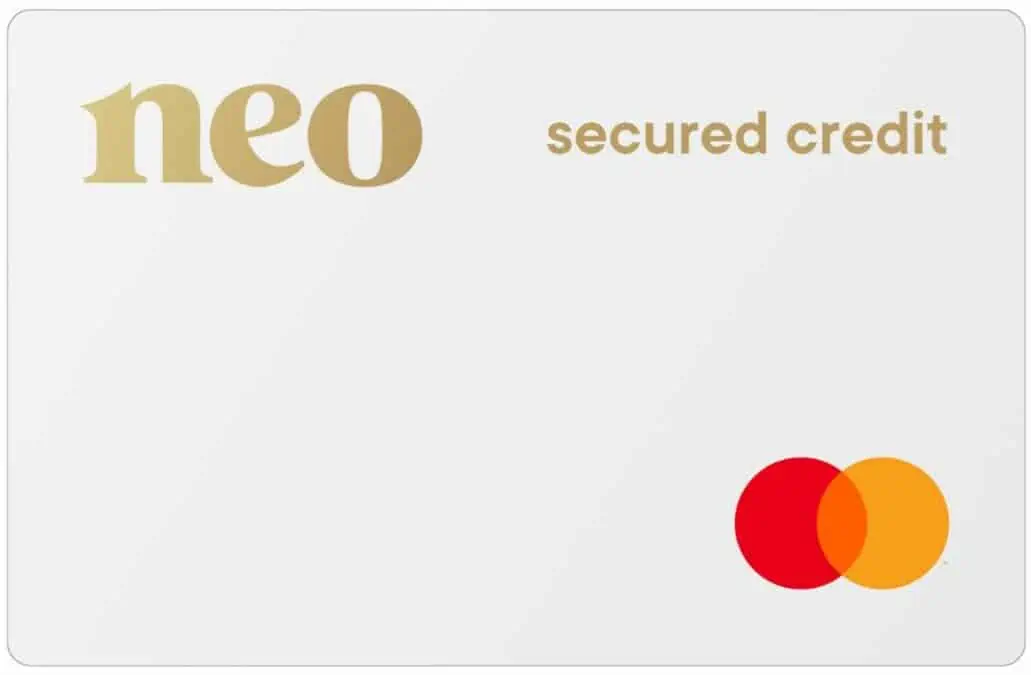
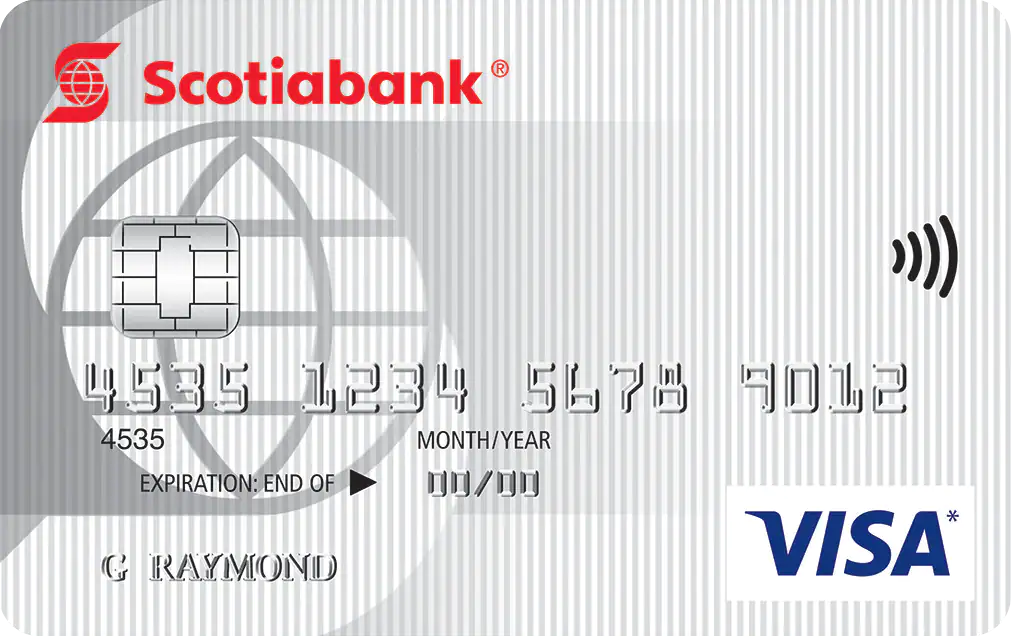
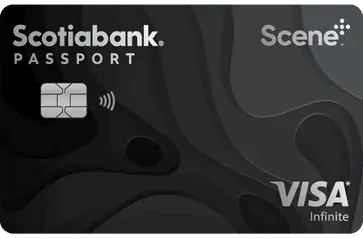
I have 2 credit cards and I can’t get approved for a nether one that iscwrong